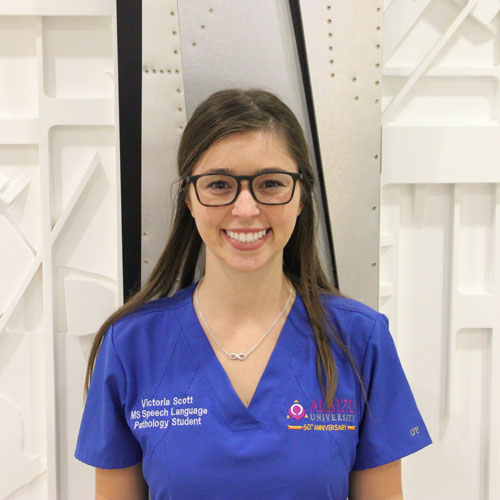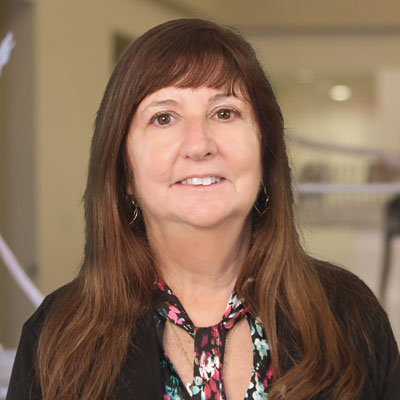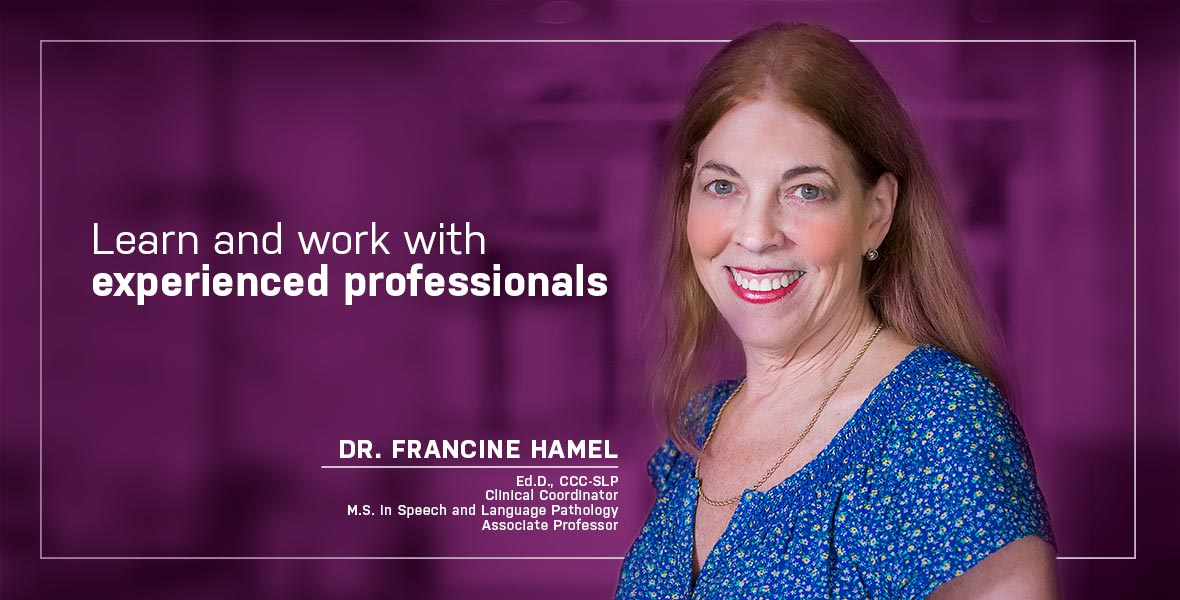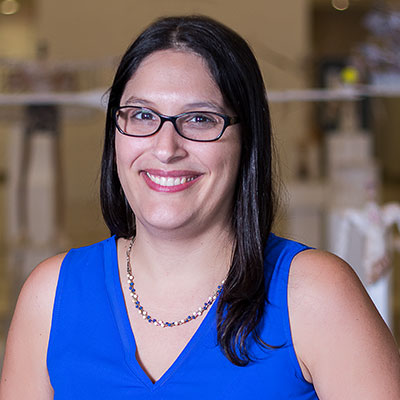
Expert Faculty
Our courses are taught by professors who are both academics and active professionals. Faculty members bring to the classroom a working expertise in theories, research, and practice in their fields.

A Strong Heritage
Founded in 1966 Albizu University is the first professional school of psychology established in North America and the Caribbean.

Flexibility
Albizu University offers morning, afternoon, evening, and night classes to provide you with the flexibility and convenience you need to meet all of life’s demands. Online classes and programs are also available.
BECOME A SPEECH-LANGUAGE PATHOLOGIST
The M.S. in Speech and Language Pathology program at Albizu University trains you to become a competent speech-language pathologist who is prepared to provide clinical services to children and adults with speech and language disorders as well to serve as a consultant or clinical supervisor. To be a professional in the communication disorders field requires knowledge and skills that transcend cultural and linguistic barriers. Albizu University, with its historic focus on sensitivity to cultural and ethnic issues, enables you to become a well-informed and clinically competent specialist who can effectively work with children and adults from diverse backgrounds.
PROGRAM OVERVIEW
The B.S. in Psychology program at Albizu University, Miami campus, gives you the foundation you will need to build a career in mental health as well as the required skills and knowledge to enter graduate school. Our program integrates social, emotional, and behavioral theories with current trends in psychology and mental health. Albizu University’s multicultural approach focuses on the worth and dignity of all people, regardless of background, origin, or life circumstances.





PROGRAM HIGHLIGHTS
Albizu University has historically provided professional training that is sensitive to cultural and ethnic issues. Following this tradition, the B.S. in Psychology program familiarizes you with a variety of multicultural topics, enhancing your ability to work with diverse populations.
Courses are taught by an expert group of faculty with real-life, practical experience in various fields of psychology. The availability of day, evening, and weekend classes provides you with the flexibility and convenience you need to meet the other demands of life.
As an undergraduate, your studies are tailored to your academic interests and goals. Should you choose to focus your undergraduate studies on a specific field, seven minors are available: Cross-Cultural Studies, Child Psychology, Forensic Psychology, Health Psychology, Applied Behavior Analysis, Gay and Lesbian Studies, and Case Management Studies. You will also have the opportunity to take a select number of graduate-level courses as electives, paving the way for entrance into a master’s degree program.
Career Opportunities
Graduates of Albizu University’s B.S. in Psychology program find employment as social workers, case managers, human resource professionals, certified addiction professionals, behavioral technicians at hospitals, child life specialists, and associate behavior analysts. Some begin careers in corrections or law enforcement or apply their studies in psychology to teaching in the Miami-Dade County Public Schools, working in areas with a critical shortage of teachers. Others continue their studies at the graduate level, with the advantage of an enhanced knowledge and understanding of human behavior.
ADMISSION REQUIREMENTS
for the BS in Psychology
- A completed and signed application form accompanied by the $25 application fee. Begin the application process by setting up an online account.
- Official transcripts from high schools, colleges, universities, and other post-secondary educational institutions attended. Please note the following requirements:
- Applicants must have an overall grade point average (GPA) equivalent to 2.0 or higher to be considered for admission.
- The transcripts must include any degree received. A GED or a high school diploma from an accredited secondary school in the United States is required.
- Applicants with high school diplomas from academic institutions outside the United States whose standards of education are substantially equivalent to the standards of education of those institutions in the United States will also be considered. The diploma must be evaluated by an authorized credential evaluation agency (see below) and must include the GPA.
- Proof of appropriate immigration status for all international students. International students should also submit an official evaluation of academic credentials by an authorized agency. For detailed information on this requirement, please refer to the Credential Evaluation Services pageof the Albizu website. All admission credentials for international students must be received by Albizu University at least 90 days prior to the beginning of the session of expected enrollment.

I chose Albizu University because I heard great things about the program and wanted to further my education with a Masters Degree. This has been the best experience and I am so thankful for having the opportunity to be in their program.
-Victoria Scott – Speech Pathology Masters Program
Faculty

Dr. Sheri Feldman
Ed.D., CCC-SLP
Professor
Program Coordinator, M.S. in Speech and Language Pathology

Dr. Francine Hamel
Ed.D., CCC-SLP
Associate Professor
Clinical Coordinator, M.S. in Speech and Language Pathology
COURSES

Study of the anatomy and physiology of the speech and hearing mechanism including respiratory, phonatory, articulatory, nervous, and hearing systems.
Overview of the audiology profession, its historical background, physical properties of
the sound, ear anatomy, physiology of the auditory system, common disorders and
administration and interpretation of hearing tests
Study of the normal speech and language acquisition process. Distinctions between speech and language are established. Terminology and speech and language characteristics according to developmental stages are explained. The course includes the analysis of sound acquisition and most common speech and language disorders.
This course discusses the ethical and legal principles applied to the Speech/Language Pathology Profession. American Speech-Language-Hearing Association (ASHA) Code of Ethics is studied. Study of the responsibilities and professional omissions of legal or ethics nature are revised.
Overview of the normal and atypical language development in children. Study of the factors that might affect communicative development. Methods of evaluation and intervention related to each disorder are studied.
Study of the characteristics of the typical fluency and pathological disfluencies. Evaluation processes including standardized tests, structured observations, data collection, and differential diagnosis and treatment in children and adults are studied.
Study of voice disorders, treatment techniques and role of the Speech/Language Pathologist and other professionals in the management of such pathologies. The course emphasizes in the differential diagnosis of voice disorders in children and adults and treatment as well.
Study of the nature and etiology of language disorders in adults. The course emphasizes in the administration and interpretation of assessment instruments used for determining appropriate intervention methods.
The course emphasizes in the identification, diagnosis and treatment of swallowing disorders in children and adults. Discussion of the assessment strategies and therapeutic approaches for treatment of dysphagia in children and adults. The course emphasizes in the interdisciplinary intervention and role of the Speech/Language Pathologist that work with this population.
Study of the anatomical, acoustic and perceptual aspects related to the articulatory mechanism. The course emphasizes in the typical and atypical articulatory development of the Spanish and English sounds. Cultural variations and different types of disorders are considered. The course also emphasizes in the assessment and differential diagnosis of such disorders and other conditions. The clinical management and treatment techniques used in intervention are discussed.
This course describes the phonological system considering the theories and phonological perspectives. It emphasizes in the description of the typical and atypical phonological development of the Spanish and English language sounds. The study of the criteria for determining differential diagnosis of organic and functional disorders is also considered. The course also emphasizes in the clinical management of such disorders.
Study of the habilitation and rehabilitation processes including auditory training, lipreading, total communication in theory and methodology.
Discussion of the history background of the AAC and its impact in the life of people with severe communication impairments. Study of the equipment used, its characteristics and uses. Discussion of strategies for implementation of the effective use of AAC to meet communicative needs. The course requires laboratory experiences, and building of low cost communication boards and adaptations for equipments.
Study of different clinical procedures used in evaluations of patients with speech and language disorders. The student will learn and develop assessment tools for evaluation and diagnosis of language disorders in children and adults.
The course presents the etiology, diagnostic and treatment of neurogenic disorders in adults. Disorders studied include aphasia and related disorders, neurogenic speech disorders, neurogenic disorders associated with right hemisphere, cranial traumas and degenerative disorders.
The theoretical model focus of this course is the transactional model for communication development. The course emphasizes in the influence of environment and linguistic competence of the child.
The course prepares the student to perform consultation and supervision roles. Standards of professional supervision, supervision strategies and service programs design are studied. The course analyzes different models of supervision and consultation.
Research design, statistical analysis and dissemination of data with emphasis in clinical research. Discussion of topics related to statement of the research problem, justification, theoretical model, research hypothesis, variables, and quantitative, qualitative designs, collection and data analysis.
Study of multicultural issues and effect of sociolinguistics, psycholinguistics and multicultural perspectives in the education of children with communication disorders; assessment and intervention techniques for various communication disorders in multicultural populations, team approach, consultation, collaboration, and counseling techniques for communication disorders in multicultural contexts; understanding relevant policies and laws for multicultural speech-language pathology.
Considerations about concepts involved in reading and written communication; definition of concepts involved: speech, language, reading and writing. Writing: definitions, pre-requisites, classification, typical development, teaching methods and pathologies. Evaluation strategies in reading and written disorders. Strategies and remediation intervention in reading and written disorders. Roles and responsibilities of the Speech/Language Pathologist in the intervention in reading and written disorders. Team work in the intervention in reading and written disorders.
APPLY NOW
TO RECEIVE MORE INFORMATION ABOUT
OUR DEGREE PROGRAMS!




